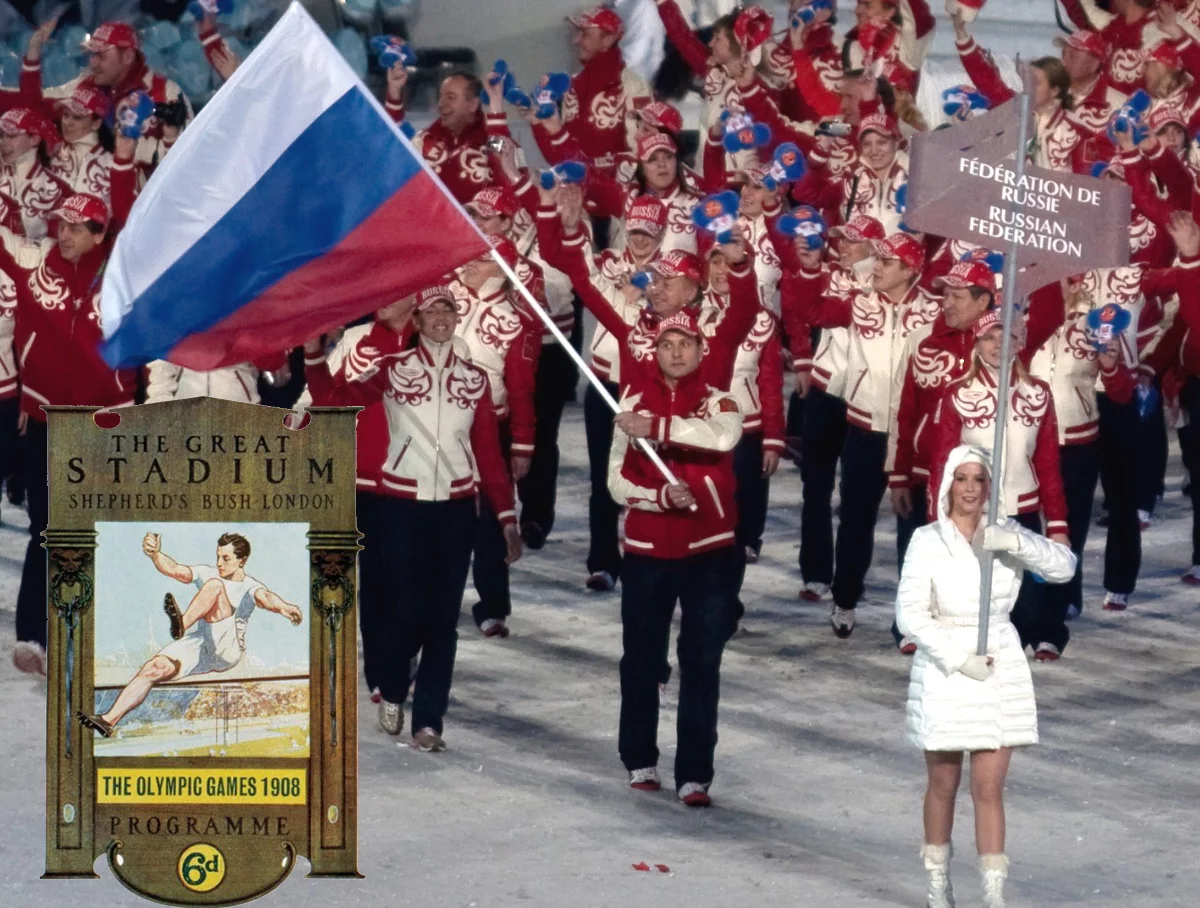You can often read that the difference between the Julian and Gregorian calendars led to the curious lateness of the entire Russian delegation to Olympic London. We checked whether this was true in reality.
Here's what the site tells us about this story: Lenta.ru: “In 1908, the Russian Empire sent a delegation to the Olympic Games for the second time. Eight years earlier, the Russian team had already participated in the Olympics, but did not win any medals. This time the issue was lobbied by General Alexei Butovsky, who has been a member of the International Olympic Committee (IOC) since its founding. A team of shooters, track and field athletes, wrestlers and figure skaters went to London, because the division into winter and summer Games did not exist then. Arriving in the UK, our athletes learned that the Games began two weeks ago.
The Russian team prudently went to the Olympics in advance, but did not take into account that Great Britain had already switched to the Gregorian calendar 200 years ago (like most European countries), and the Russian Empire continued to live according to the Julian. The difference in dating between countries was about two weeks. When the Russian delegation began to register, it turned out that the Games were already in full swing, and competitions in some disciplines had completely ended.”
Similar information can be found in the publications “RIA Novosti", Sports.ru, VOS and a number of other resources.
IV Summer Olympic Games Modern times took place in London in 1908 and welcomed 2,008 athletes. It is noteworthy that among them there were 53 times more men than women (1971 versus 37), which, however, was not surprising at that time. Initially, Rome was supposed to host the games, but it was not ready.
Indeed, this was not the first time that the Russian Empire participated in the Olympics. In 1896 in Athens went several people, but they did not have enough money from their pocket to achieve the goal. And the only Russian who made it, nobleman Nikolai Ritter, shortly before the start of the main competition, lost his talisman medallion and decided to withdraw. Four years later in Paris The country was represented by two horsemen and three fencers, but they failed to win medals. Finally, in 1904, funds for a trip to the distant American St. Louis was not found in Russia.
And then 1908 came. In the absence of the National Olympic Committee, the delegation was formed by a Russian member of the IOC - not Alexei Butovsky (who left the organization back in 1900), but his successor in this authoritative organization, Count George Ribopierre, who personally sponsored the trip of some of the athletes to the Games. According to modern reference books, participation in the Olympics accepted six Russian athletes: four Greco-Roman wrestlers, one marathon athlete and one figure skater - Nikolai Panin-Kolomenkin, who brought Russia the first and for many decades only Olympic gold. Moreover, for the first time, the national team competed as a separate team at the Games. Finland - then still part of the Russian Empire, which did not stop it from sending an impressive delegation of 67 people to London and winning five medals.
What about the dates? Indeed, UK moved on to the Gregorian calendar in 1752, and Russia used the Julian calendar until 1918. By the beginning of the 20th century, the difference between the two systems reached 13 days, so it was theoretically possible to make a mistake. But, on the other hand, it seems incredible that it was not noticed by any of the significant number of people who were directly or indirectly related to the sending of the Russian delegation.
Deadlines the holding of the London Olympics by modern standards seems nonsense: from April 27 to October 31, 1908, that is, more than six months. We are talking directly about competitions, but formally the Games opened only on July 13, King Edward VII of Great Britain. In the publication on "Peekaboo“It is said that the Russian team was late for the opening ceremony, and also completely missed the shooting competition (they had already ended by the time the delegation arrived). At the same time, in official report According to the results of the Olympics, it was indicated that the power was represented by eight, not six people:

Two Russian athletes featured in general report, but missing from the competition results, are, as it turns out, not the shooters, but the cyclist Martinson and the discus thrower Petrovsky, who seem to have dropped out even before entering the fight. In their disciplines, the competition days were July 14, 15 and 16. As for the opening ceremony, the Russian flag was indeed not seen at it - the Finnish delegation also chose to march without it.
The shooting competition took place from July 9 to 11. The report indicates the date of arrival of each delegation to these competitions, but Russia is not there not only among those who arrived, but also among the absent teams, to which separate lines are dedicated:

From this we can conclude that the nameless Russian shooters at least withdrew from the competition in advance, and were not late for it. What about other athletes? Four wrestlers (two of them will take silver) competed from July 21 to 25. Marathon runner Georg Lind completed his only race on July 24. Finally, the figure skating tournament took place much later, at the very end of the Olympics (October 28–29), that is, Nikolai Panin-Kolomenkin had nowhere to rush.
Thus, the Russian delegation as such could not be 12 days late for the Olympics for two reasons: 1) the Olympics started in April, and the Russians entered the fight in July; 2) only eight days passed between the opening day of the Olympics and the first day of competition for the Russians. At the same time, all those Russian athletes who were included in the protocols managed to fully take part in the Games.
It turns out that the weak link here can only be the Russian shooting team, which for some reason was not noted in the report. Here's what an American magazine writes about it Sports Illustrated: “On July 11, 1908, the United States beat Great Britain for gold. The Russians did not appear in the standings and turned out to be uncompetitive. Not because they were no good, but rather because they didn’t exist. Although they arrived in the city a few days before July 11, they did so according to the wrong calendar. Unlike other teams, the Russian shooters arrived according to the Julian calendar, that is, 12 days after the Gregorian calendar. The event is long over." Similar information, but with the mention of July 10 (23), is given by another modern English-language edition, dedicated to that Olympics.
Let’s close our eyes to the mention of 12 days instead of 13. So that this quote does not contradict itself, it is necessary to accept that the second “profit” refers to the appearance of shooters at the shooting ranges themselves in Surrey, and not in London. It turns out that Russian teams in individual sports reached the Games on their own. This idea is indirectly confirmed by Nikolai Panin-Kolomenkin in his memoirs. Thus, the only thing that can be assumed from the case we are considering is the late arrival of only the delegation of Russian shooters at the competition site. In relation to other athletes, such a statement is definitely not true.
Half-truth
If you find a spelling or grammatical error, please let us know by highlighting the error text and clicking Ctrl+Enter.







